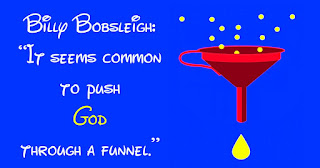The church
The local billiards club, of which Billy had been a member for years, had a problem. In Billy’s humble opinion, and most club members concurred. Every year since its inception near 1782, the problem has been on the agenda. Apparently, they failed to solve the problem. The balls weren't the problem. They had been around since the genesis of this indoor 'ball game on a table' and, for obvious reasons, couldn’t and shouldn’t be touched. The fact that different offshoots of the basic game had emerged overtime was not the problem either.
No, the problem
was the survival of the club where aging and predictability were identified as
central culprits. Of course, the board was held responsible. Sometimes, younger
aspiring members checked out the club but often called it quits after a couple
of nights and joined the local racketball club instead. Women were also allowed to
participate there, you see, to name but one reason.
At the most
recent members' meeting, some club members had filed a motion. The board should
step down and make way for the younger guard who had to clean things up and
innovate. Some of those younger members held a degree in innovation, so the
future would be in good hands with them.
The predictability of the annual internal competition also had to be
addressed as it seemed that always the same persons ended up with the grand
victory.
At intermission,
a club member had said softly spoken the word "boring" in his elbow and
this was overheard by some of the members, resulting in a tense silence but was
quickly washed away with another round of pints.
Arriving home that night, Billy did some deep thinking and it dawned on him that with the ball game on a table there is not that many alternative routes to take with the basic stick (cue), green cloth (they'd tried blue which remarkably caused a resurgence but that - both the cloth and the resurgence - had faded quickly), some balls and, of course, people.
No, if he was honest, and he was trying to be, it wasn't so much the game but his own role and place in the bigger story that he needed to look at. So, Billy concluded, I should not so much blame the club (although some of the recriminations and concerns are quite justified and should continue to on the agenda) but carefully look at what I can do to constructively keep the game alive and moving.The parallel with
the church, which he had now left, suddenly dawned on him, and Billy quietly
wondered if he might not have pointed too much at the church in the process
that led to him leaving the church, and
too little at himself. He gave himself seven days to think about it and possible
come to some resolve and conclusions....
Of all the ways in which to engage in the enterprise of church, this has to be the most absurd – this haphazard collection of people who somehow get assembled into pews on Sundays, half-heartedly sing a few songs most of them don’t like, tune in and out of a sermon according to the state of their digestion and the preacher’s decibels, awkward in their commitments and jerky in their prayers. But the people in these pews are also people who suffer deeply and find God in their suffering. These are men and women who make love commitments, are faithful to them through trial and temptation, and bear fruits of righteousness, spirit-fruits that bless the people around them…
.. But these are mixed in with the others and are, more often than not, indistinguishable from them. I can find, biblically, no other form of church.
Eugene Petersen, Under the unpredictable plant 23-4.
This is the fourth blog in a series of five about Billy Bobsleigh leaving the church.
1. How Billy Bobsleigh got burned
2. Possibly to blame for Bill's burn 1: God
3. Possibly to blame for Bill's burn 2: The Bible
4. Possibly to blame for Bill's burn 3: The church
5. Possibly to blame for Bill's burn 4: Billy (next blog)
Images:
Pixabay
Church:
https://pixabay.com/nl/vectors/huis-icon-silhouet-kruis-304072/
Balls:
https://pixabay.com/nl/vectors/ballen-cue-game-biljart-vrije-tijd-34909/
Table:
https://pixabay.com/nl/vectors/tafel-biljart-zwembad-sport-game-311027/



